Ronaldinho Wallpaper
Showing posts with label Brazil. Show all posts
Showing posts with label Brazil. Show all posts
Tuesday, October 18, 2011
Saturday, October 15, 2011
Saturday, September 24, 2011
Friday, September 23, 2011
Tuesday, September 13, 2011
Argentina beat Brazil to win FIBA Americas
It was the perfect finale for a South American clash, in a match-up that sounds more like the final of the FIBA World Cup or the Copa America than the FIBA Americas Basketball Championship.
 But it was indeed a basketball final: Argentina vs. Brazil, the two best and most consistent teams in South American basketball, made their way to the final of the 2011 FIBA Americas, which was held in Mar del Plata, Argentina. Argentina defended their position as hosts in the perfect manner to a close finish: led by Houston Rockets' PF Luis Scola, one of Argentina's greatest ever players, and the MVP of the championship, Argentina won the final 80-75 over their eternal rivals.
But it was indeed a basketball final: Argentina vs. Brazil, the two best and most consistent teams in South American basketball, made their way to the final of the 2011 FIBA Americas, which was held in Mar del Plata, Argentina. Argentina defended their position as hosts in the perfect manner to a close finish: led by Houston Rockets' PF Luis Scola, one of Argentina's greatest ever players, and the MVP of the championship, Argentina won the final 80-75 over their eternal rivals.In a fast-paced game, both teams went hard against each other, and it was the presence of Scola (32 points) that proved to be the difference between the sides as Argentina led at halftime. Brazil made their own strong comeback and took a six point lead in the second half, but the close game turned in the last minutes behind clutch play by Scola and Carlos Delfino for Argentina to hand the hosts the victory.
Delfino added 16 points for Argentina. For Brazil, the leading scorer was Marcus Vinicius Vieira Souza.
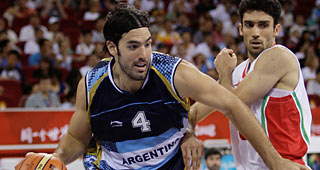 This was only Argentina's second ever FIBA Americas championship.
This was only Argentina's second ever FIBA Americas championship. Third place in the tournament went to the Dominican Republic, who beat the other strong Americas side, Puerto Rico, in the third-fourth place playoff.
The championship, which is also an Olympics qualifying tournament, was skipped by the Americas most successful ever team, the USA, who had already qualified for the Olympics after winning the 2010 FIBA World Championship. By reaching the finals, Argentina and Brazil also qualified for the 2012 Olympics.
Scola was named MVP, and was a part of the All-Tournament team, which had NBA-experience sprinkled all over it. Scola led the tournament in points per game (21.4).
All Tournament Team
Sunday, July 31, 2011
USA defeat Spain to defend FIBA U19 Women’s title
The USA U19 Women’s team continued their dominance over women’s basketball, as they defeated Spain 69-46 in the final of the FIBA U19 Championship for Women at Puerto Montt in Chile on Sunday, July 31, 2011. This completed back-to-back U19 titles for the US team, who have also won one U17 and one senior woman’s championship in the past two years.
 It was an easy ride for USA in the final, who dominated Spain from the start behind great performances by Stefanie Dolson, Elizabeth Williams and Kaleena Lewis.
It was an easy ride for USA in the final, who dominated Spain from the start behind great performances by Stefanie Dolson, Elizabeth Williams and Kaleena Lewis.Brazil outlasted Australia in a close duel 70-67 to claim the bronze medal.
Brazil’s star forward Damiris Dantas, who averaged 20.9 points and 12.6 rebounds per game, was named the Most Valuable Player of the 2011 FIBA U19 World Championship for Women in Puerto Montt, Chile.
All Tournament Team
Sunday, October 17, 2010
Video: Chinese National Team beat the Brazilians. Literally.
Hmm... Talk about a "friendly" match.
 If you haven't seen this video yet, it's time to feast your eyes on one of the most atrocious things to happen to a major basketball game since Ron Artest went up the stands.
If you haven't seen this video yet, it's time to feast your eyes on one of the most atrocious things to happen to a major basketball game since Ron Artest went up the stands. About five days ago, the Chinese National Basketball team were playing a friendly against a team from Brazil, part of their preparation for the 2010 Asian Games that will be held in the home soil for the Chinese (in the city of Guangzhou). In just the first quarter of this game, the referee called a foul on a Chinese player, and the coach of the China Sr. Men's team American Bob Donewald, Jr. reacted angrily (really angrily - cursing out loud, smashing the scorers table, etc.). Play between both teams became rougher, until finally, an open fight busted out on court.
Actually, I would be wrong to call it a "fight." In a "fight", two parties attack each other. This wasn't like that at all - this was more like a spanking. For the lack of a better phrase, the Chinese players "opened a can of whoop-ass" on the Brazilians, beating up black and blue on their home court. The Brazil players did not really respond, and even when everything seemed to be calm and the players began heading back to their locker rooms, they were attacked by the entire Chinese contingent again.
Here is the video:
Shameful. Just shameful.
From China.org.cn:
China's coach, Bob Donewald Jr, was quoted by sina.com as saying: "We really didn't want to pick a fight, but we had to protect ourselves. One of our players was sent to the hospital with concussion. The Brazilian behavior was unprofessional
But the witness told a different story.
"Donewald was the one who goaded the Chinese players into fighting. The players had been pretty much normal until the coach's outbursts. Donewald was howling at the players and the referees from the first minute," said the witness.
"Chinese players Ding Jinhui and Zhang Bo carried out two ferocious fouls immediately after a timeout during which Donewald had said something to them," the witness said.
'Chinese players deliberately picked a fight'
"The Brazilian players applauded the fans as they walked off the court. But that was seen as a provocation by the Chinese players and they chased after them and attacked them again. They deliberately picked a fight," the witness said.
The match was abandoned and the Chinese side put on an in-house training session instead. But the spectators demanded their money back and the organizers have promised a refund.
 According to BBC.co.uk, the China's players will be made to attend classes on good sportsmanship.
According to BBC.co.uk, the China's players will be made to attend classes on good sportsmanship. This is so damn awful, really, the Chinese Federation should be ashamed for this, especially since it is so close to their own Asiad event in less than a month. And Coach Donewald should've known better than watching (or even coaxing) his young players into this kind of situation.
Indian Men are in the preliminary round in the Asian Games' basketball tournament. Head Coach Bill Harris is known for his defensive capabilities, but he'll need some masterful defense to block against this kind of physical assault if India play the hosts.
Wednesday, September 1, 2010
Turkey FIBA World Championship experiences motivates Indian youngsters
 "My ambition is to there, on that basketball court, representing India in the basketball world championships!"
"My ambition is to there, on that basketball court, representing India in the basketball world championships!"14-year-old Poojamal from the town of Kottayam in Kerala got to realise an amazing dream last week - she was part of the lucky few basketball fans that attended several games of the ongoing FIBA Basketball World Championships in Istanbul, Turkey, make dozens of new friends, and be trained by some of the best coaches in the world.
 Two Indian sub-junior players, Poojamal, and Yogesh Kanderiya from Rajasthan, had been selected by BFI to be India's official representatives in FIBA's "Children of the World" camp in Istanbul, set to be held around the World Championships. The two youngsters were accompanied by coach P. Deepa Sundari from Tamil Nadu for this experience from August 24-31.
Two Indian sub-junior players, Poojamal, and Yogesh Kanderiya from Rajasthan, had been selected by BFI to be India's official representatives in FIBA's "Children of the World" camp in Istanbul, set to be held around the World Championships. The two youngsters were accompanied by coach P. Deepa Sundari from Tamil Nadu for this experience from August 24-31.A highlight of this trip was their chance to watch six World Championship games, including three games played by the exciting USA team - USA vs Croatia, USA vs. Slovenia, and USA vs. Brazil. "Just watching these games made me want to be there, playing for the Indian team, and playing against the world's best at this stage," said Kanderiya.
 Kanderiya was given further encouragement for his own stellar play when he was chosen as the best Boy player at the Children of the World camp. Around 400 teen boys and girls from 200 different FIBA countries were invited for this camp to improve their basketball skills and participate in 3-on-3 basketball games under the watchful eyes of expert coaches from around the world.
Kanderiya was given further encouragement for his own stellar play when he was chosen as the best Boy player at the Children of the World camp. Around 400 teen boys and girls from 200 different FIBA countries were invited for this camp to improve their basketball skills and participate in 3-on-3 basketball games under the watchful eyes of expert coaches from around the world.Although only 24 of the best teams in the world participate, FIBA has designed the "Children of the World" project aiming to provide a possibility for official representation of all of the FIBA member countries through "young ambassadors" - young basketball players and coaches who will come together in a global basketball camp. One boy, one girl, (both between the ages of 13-14) and one young coach were sent to Istanbul from each of the FIBA-member countries and were hosted by the Turkish Basketball Federation.
 "It was a very good experience," Kanderiya added, "We got the chance to meet other kids from all over the world - from countries like Gabon, Australia, New Zealand, USA, Lithuania, and Bhutan."
"It was a very good experience," Kanderiya added, "We got the chance to meet other kids from all over the world - from countries like Gabon, Australia, New Zealand, USA, Lithuania, and Bhutan.""We did a tour of Istanbul as well - it is a beautiful city - we visited several mosques and went shopping, too."
 The youngsters did their share of cheerleading for India, too, taking part in the colourful opening ceremony of the Championships and waving the Indian flag high at every occasion!
The youngsters did their share of cheerleading for India, too, taking part in the colourful opening ceremony of the Championships and waving the Indian flag high at every occasion!"We were taught some great drills and basketball fundamentals by the coaches," added Poojamal, "We did passing, dribbling, lay-ups, and ball-handling exercises, and also played 3-on-3 half-court games."
 Both the youngsters came out impressed by the Championship games, stating the USA-Brazil thriller, where USA won 70-68 on a last second miss, as the best game of the lot. Poojamal said that her favourite player was Kevin Durant, whereas Kanderiya was a fan of Russell Westbrook - both American players who play for the NBA team Oklahama City Thunder.
Both the youngsters came out impressed by the Championship games, stating the USA-Brazil thriller, where USA won 70-68 on a last second miss, as the best game of the lot. Poojamal said that her favourite player was Kevin Durant, whereas Kanderiya was a fan of Russell Westbrook - both American players who play for the NBA team Oklahama City Thunder.The "Children of the World" project was designed to educate, engage, and influence young ambassadors to be aware of and sensitive towards a range of global issues and develop towards playing an active role in their respective countries as "citizens of the world" - judging by the experiences and exposure that these two Indian youngsters received over the past week, it is fair to say that they are not only on the path to become accomplished basketball players but also took a few steps forward as globally aware citizens.
Labels:
Brazil,
Children of the World,
Croatia,
FIBA World Championships,
Istanbul,
Kevin Durant,
Oklahama City Thunder,
P. Deepa Sundari,
Poojamal,
Russell Westbrook,
Slovenia,
Turkey,
USA,
Yogesh Kanderiya
Sunday, May 9, 2010
History of Brazil Culture

Before the first Portuguese explorers, led by Pedro Álvares Cabral, arrived in 1500, Brazil is thought to have been inhabited by semi-nomadic populations for at least 10,000 years. Over the next three centuries, it was resettled by the Portuguese and exploited mainly for brazilwood (Pau-Brasil), then sugarcane (Cana-de-Açúcar), coffee beans and gold mining. The colony's manpower was initially composed of enslaved peoples, firstly Amerindians and then, after 1532, mainly Africans.
The only recorded transcontinental relocation of a royal family occurred in 1808 when the Portuguese royal family, headed by Queen Maria I of Portugal and her son and regent, the future João VI of Portugal, fled Napoleon's armies and relocated to Rio de Janeiro, along with the government and nobility. Although they returned in 1821, the interlude led to the opening of commercial ports to the United Kingdom — at the time isolated from most European ports by Napoleon — and to the elevation of Brazil to the status of a United Kingdom under the Portuguese Crown. Upon João VI's departure, the remaining royal government in Rio moved to dissolve the Kingdom of Brazil and return it to the status of colony. This resulted in the small scale conflicts known as the Brazilian War of Independence. On 7 September 1822 Prince regent Dom Pedro I (later Pedro IV of Portugal) declared independence, establishing the independent Empire of Brazil. A treaty recognizing the Empire's independence was signed on 29 August 1825 with Britain and Portugal. As the crown remained in the hands of the House of Bragança, this was more the severance of the Portuguese empire in two, than an independence movement as seen elsewhere in the Americas. Emperor Dom Pedro II of Brazil, 1873. Emperor Dom Pedro II of Brazil, 1873.
The Brazilian Empire was formally a democracy in the British style, although in practice, the emperor-premier-parliament balance of power more closely resembled the autocratic Austrian Empire. Slavery was abolished in 1888, through the "Golden Law", created by Princess Isabel, and intensive European immigration created the basis for industrialization. Pedro I was succeeded by his son, Pedro II — who in old age was caught by a political dispute between the Army and the Cabinet, a crisis arising from the Paraguay War. Pedro II was deposed from the throne on 15 November 1889, when a federal republic (officially, the Republic of the United States of Brazil) was established by Field Marshal Deodoro da Fonseca.
In the late nineteenth and early twentieth centuries, Brazil attracted over 5 million European, Arab and Japanese immigrants. During this time Brazil became industrialised, further colonised, and its interior further explored and developed. Brazilian democracy was replaced by dictatorships three times — 1930–1934 and 1937–1945 under Getúlio Vargas, and 1964–1985, under a succession of generals appointed by the military. Since 1985, Brazil has been regarded as a presidential democracy, a status affirmed by a plebiscite in 1993 which asked voters to indicate a preference for a presidential or parliamentary system. Voters also decided not to restore the country's constitutional monarchy.




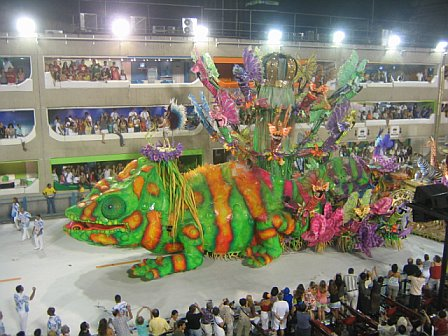





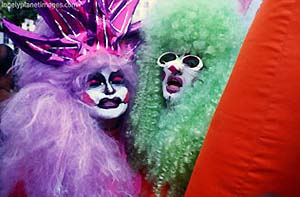









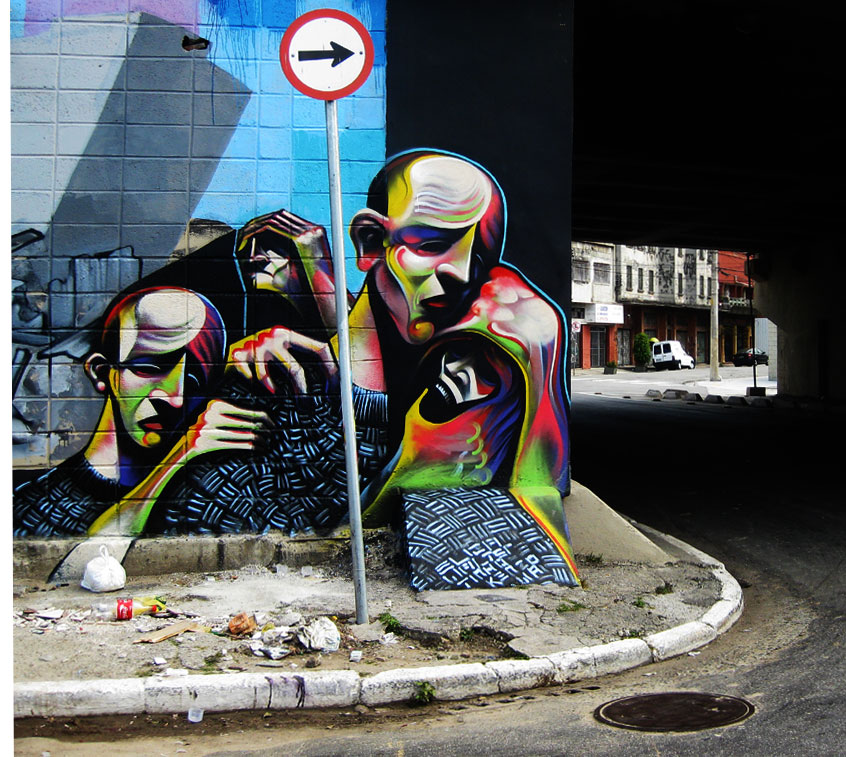




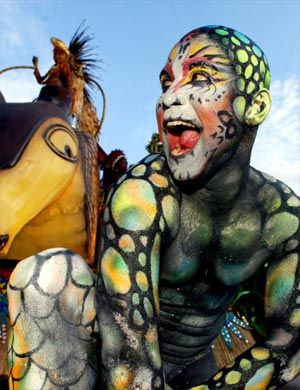





.




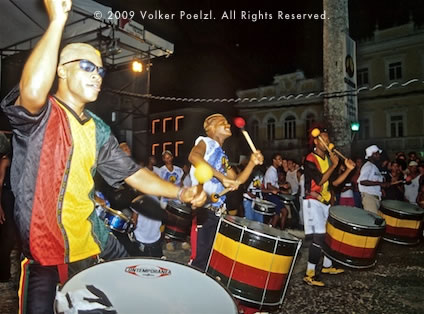
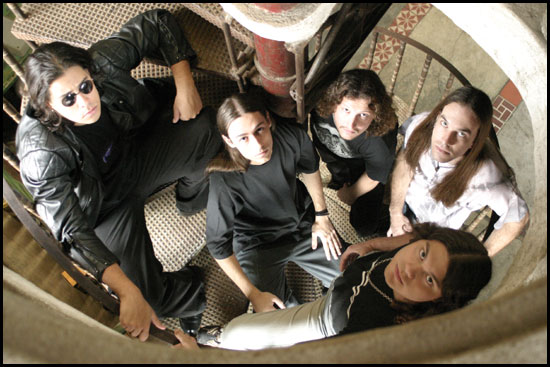














.jpg)





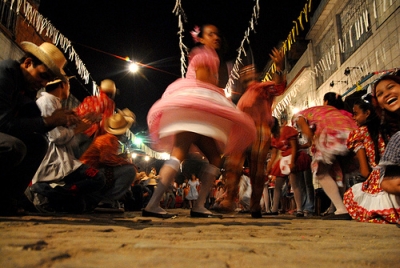





Subscribe to:
Posts (Atom)















